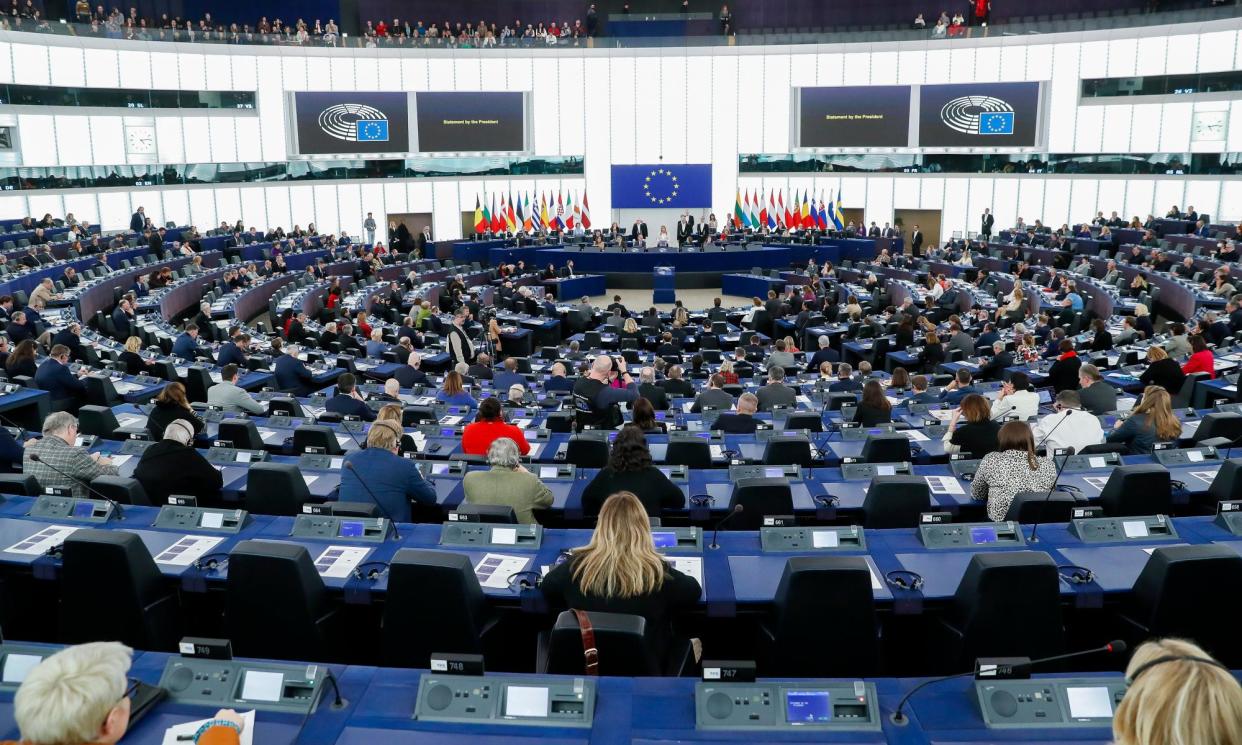MEPs’ lack of racial diversity has caused EU identity crisis, campaigners say

The European parliament’s failure to fully reflect the EU’s diverse population has caused an “identity crisis”, campaigners have said, just days ahead of a vote that is expected to elect even fewer Black, Asian and minority ethnic MEPs.
In an analysis shared exclusively with the Guardian, the European Network Against Racism found that in the parliament’s last mandate, just 4.3% of MEPs were from racial and ethnic minorities – a proportion that falls drastically short of the estimated 10% of the EU population who identify as such.
The wide gap was exacerbated by Brexit, with the departure of the UK MEPs in 2020 sending the proportion of racialised minorities in the European parliament tumbling to 3.5% – just 25 of 705 MEPs, according to a 2020 analysis.
“I think this really tells us a lot about our democracy,” said Nourhene Mahmoudi, an advocacy and policy adviser with the antiracism network. “Europe is living in an identity crisis because the European parliament, from the research and data that we have collected, does not represent the entire European population.”
In practice, say campaigners, this gap means people with lived experience of problems such as racism and inequality are often not at the table during key European discussions, hindering efforts to create policy that addresses the needs of the EU’s varied population. “This disparity poses fundamental questions about the democratic legitimacy of the institutions, particularly the European parliament,” said Mahmoudi.
With polls suggesting support for far-right and nationalist parties will surge in June’s European elections, campaigners are bracing for a political landscape that they fear could further stigmatise marginalised communities – and with fewer MEPs of colour in parliament.
Data collected by the antiracism network showed a stark contrast between leftwing and centre parties, where in many cases some efforts have been made to include minority ethnic candidates on party lists, and rightwing parties, where this level of representation was low and in some cases completely absent.
Certain political factions, such as the far-right Identity and Democracy group of MEPs, lack any representation from racialised minorities.
Mahmoudi stressed, however, that representation in the European parliament needed to go further than “merely ticking boxes” if it wanted to truly create a more equal Europe.
“Diversity and political representation is vital,” said Mahmoudi. “But at the same time, we have to recognise that representation alone or tokenised and shallow representation does not guarantee progress in combatting racism.”
In recent years campaigners have watched as far-right parties exploit diversity rhetoric and put forward minority ethnic candidates in an attempt to further their own agenda. “When racialised individuals espouse far-right ideologies, they legitimise and justify policies that perpetrate harm against minorities,” said Mahmoudi. “This is what we call diversity-washing.”
It is a tactic that complicates the question of how to best tackle the parliament’s wide diversity gap. Campaigners pointed to various approaches, from strengthening civil society organisations, to tackling the systemic racism that often impedes political participation and making the EU and its institutions more accessible to its citizens.
Another strategy lies in tackling Europe’s identity crisis, said Mahmoudi. “I think that Europe needs to courageously, and really honestly, address its colonial past and understand that the racism we are living today comes from the actions of the past.”
The antiracism network has also sought to build bridges with allies who recognise that addressing racism is key to strengthening democracy across the EU. “True representation means understanding that racism isn’t just a problem faced by racialised individuals – it’s a systemic issue that permeates the democratic fabric of European society,” she said.
“So even if this problem affects minorities, it’s not only their responsibility to address it. It’s everyone’s responsibility.”


